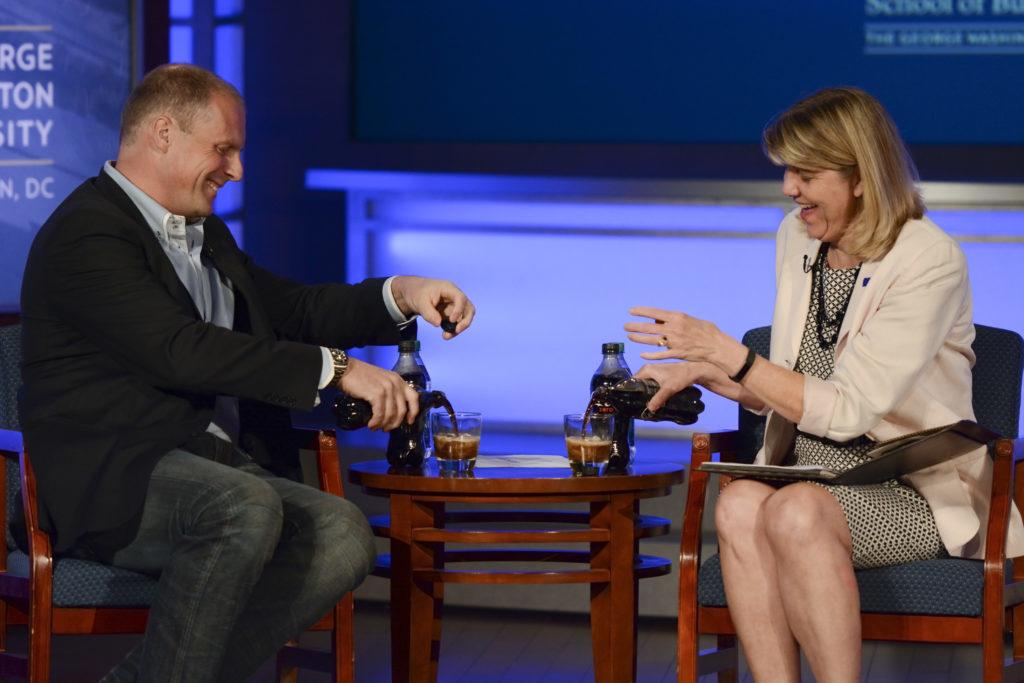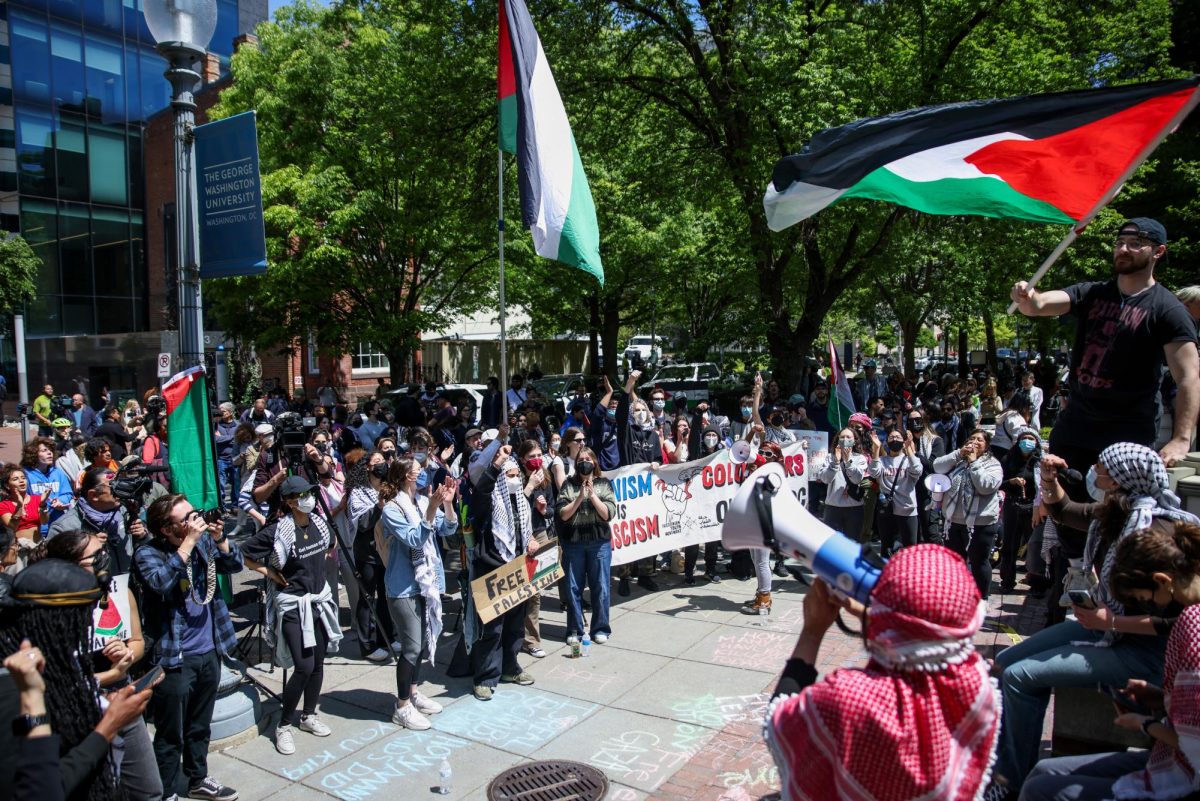A Coca-Cola executive discussed sustainability and company ethics to about 75 students and faculty in the Jack Morton Auditorium Tuesday, part of an annual business school lecture.
In his talk, Derk Hendriksen, Coca-Cola’s vice president of business integration within its office of sustainability, talked about the company’s sustainability projects and the importance of giving back to the community.
The event was the School of Business’ 18th annual Robert P. Maxon lecture, named in honor of a prominent an alumnus and oil executive. Each year the lecture brings business executives or prominent academics to campus to discuss the biggest issues in today’s globalized economy.
Here are three takeaways from the event:
1. Serving the community
Hendrickson discussed Coca-Cola’s goal to replace all the water that it uses in its products. He said the company officially became water neutral in 2016.
Hendriksen said community service is a core value of the company. He said Coca-Cola runs a variety of programs designed to help jumpstart economic development in impoverished neighborhoods.
“The communities we operate in are very near and dear to us. When it comes to youth employment, women empowerment, women employment, creating economic opportunity, that is of critical viability and sustainability of our business at the local level,” he said.
2. Programs for the developing world
Hendriksen talked about EKOCENTER, the Coca-Cola-led program that sets up small stations in developing communities providing clean water, solar power, internet access, health services, mobile banking and Coke products to people who otherwise wouldn’t have access to them.
More than 150 centers have been built in more than 30 countries worldwide. The program typically operates in rural communities, particularly in Asia, Africa, and Latin America, he said.
“There’s lots of challenges and we’re working through them every day,” he said. “Problems exist that are relevant to our business, but a genuine care for these communities and not walking away from it when disaster strikes is of critical importance.”
Hendricksen added that Coca-Cola employs local women to run the stations.
“In the long run a business can only be as healthy as the communities it is a part of. Holistic community well-being is critical to our long-term existence,” he said.
3. Raising ethics questions
During a question and answer session, some students questioned the company’s ethical practices and suggested it too easily dismisses safety concerns about its products.
One student questioned how the company could tout clean water initiatives while using potentially harmful chemicals in its soda.
Hendriksen said the artificial sweetener aspartame, used in Coke products was not dangerous.
“Safety is a first and foremost important mission when it comes to our products,” he said. “From our perspective we would not put anything in our products that isn’t safe, and from our knowledge, aspartame is safe.”





